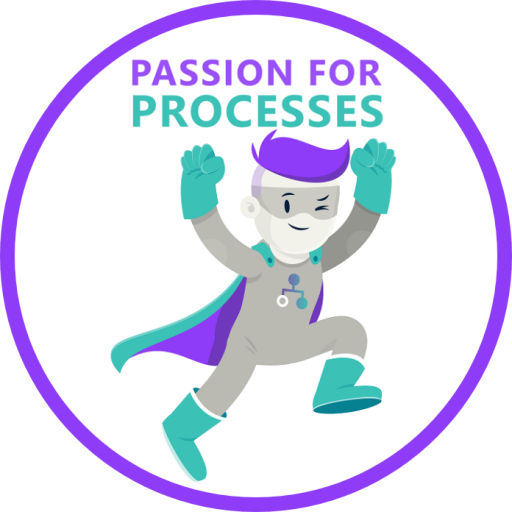Can't remember how many phone calls and emails it took me to get my new DSL Internet connection finally working. I don't want to blame them here, since everything is working now fine. But just a few minutes ago I learnt that in Switzerland my DSL order could have been handled so much smoother. If I only knew that earlier...
Mr. Markus Witschi, operations manager for SMEs at Swisscom, presented on the ARIS User Day the results of the very successful process monitoring project in his company using ARIS Process Performance Manager (PPM). And the title of his presentation "How to X-ray the IT systems" promised a lot and but also fulfilled it at the end.
He was so confident about the running tool in his company's network and more importantly about the very sensitive content freshly loaded into the system earlier today, that he logged into PPM in front of the audience live at the event.

Instead of showing single tool features, he was demonstrating use case such as continuous monitoring of the order status. We could watch him browsing through the aggregated level of monitoring using the ARIS Performance Dashboard (shown above), an integrated component of ARIS PPM.
And wherever he found a "red traffic light" on performance indicators, warning him about failing a goal such as a promised process cycle time from order entry until order completed, he immediately drilled down into the PPM front-end and analyzed the root-cause.
Mr. Witschi said, he fully relies on this early-warning system for handling the order processing, because not only such manual analysis is needed, but the system also provides daily reports, automatically generated for more than 2000 recipients throught the company. No single order can ever be lost, and more importantly from my perspective as a potential DSL customer, customers no longer suffer from stagnant orders and had to call the provider in the first place. Instead, the company could now proactively "repair the process on the fly".
A few months after going back in 2007, the delivery time had been dramatically reduced, although the order volume raised significantly. All that was possible, so Mr. Witschi, because PPM gave the company a always up-to-date transparent picture of the current "health" status in the order processing.
At the end of his presentation Mr. Witschi refered to E2E Bridge as a major accelerator for the runtime data extraction, which could be an often an underestimated hurdle for implementing PPM. He showed that the rather technically driven data extraction was in his project 100% model-based in more than 100 UML diagrams, all immediately executable in the E2E Bridge.
At the bottom line, Swisscom saves money due to an early detection of open and overdue orders of it Internet products sales. So at the end of the day, not the customer could blame this provider for delayed orders, it is the provider itself reacting early enough so that the customer wouldn't recognize it.
If you are interested in more details about this project, read the Swisscom case study. And German-speaking readers can even watch an interview with Mr. Witschi.
May the process performance always be with you (on whatever side you are in the process ;-)!
Cheers
Rune

